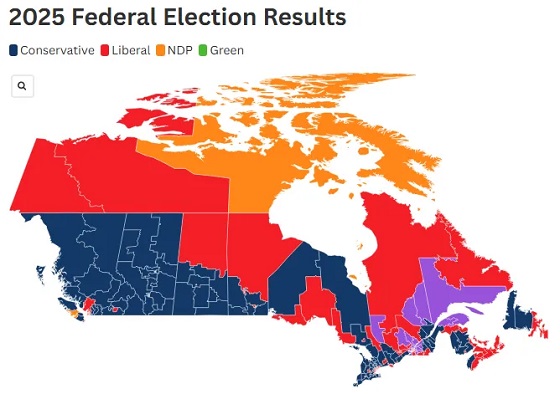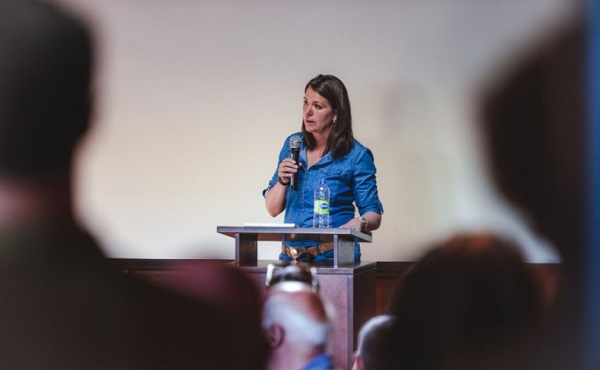Frontier Centre for Public Policy
Let’s get the facts on the graves, with a public inquiry

From the Frontier Centre for Public Policy
Canada needs a public inquiry into what has become known as “The Kamloops Graves Hoax”.
The May 27, 2021 claim of the Kamloops Indian band was that “human remains” were found in the apple orchard area of the former Kamloops Indian Residential School, resulting in what has been described both as a “national hysteria” and a “moral panic”. The band subsequently extended the claim to include other even more graphic terms, such as “bodies”, “graves” and even “mass graves”. Emotional articles and books followed.
In a press release issued three years after those sensational claims were made, their chief, Roseanne Casimir, has finally admitted the truth – there were no “human remains”, “bodies” “graves” or “mass graves” found at Kamloops.
Only “soil anomalies” were detected. Those anomalies could just as easily be tree roots, rocks, or the result of any of the other previous excavations that had been done in that same area. (As it happens there was a previous excavation in the area that was apparently missed by the radar operator. It is almost certain that it was soil anomalies from a 1924 excavation that her radar detected.)
Those 2021 false claims sent the nation into a panic. There is no need to describe in detail the flag-lowering, church-burning shock and frenzy that spread like wildfire through national and international media, brought the ailing Pope to Canada, convinced shamed MPs to condemn their own country as genocidal, vote in regressive UNDRIP and other incredibly expensive legislation, and spend what will be billions of dollars on a futile search for “missing children” who never existed. Many fine writers, including Terry Glavin, have described these strange last three years.
That episode of national hysteria is now an embarrassing part of Canada’s history.
A legitimate question to ask is why the Kamloops band made those false claims.
Chief Casimir said that they were based on Sarah Beaulieu’s report.
“But it would be shockingly unprofessional for a ground penetrating radar operator (GPR) to claim that graves had been found before excavation had taken place. It is well known that GPR can detect only soil anomalies or disturbances. It cannot detect “graves” or “human remains”. A simple Google search of the question “Can ground penetrating radar detect graves?” is all that is necessary to find that answer.
It therefore seems highly unlikely that Beaulieu would have made such a reckless claim. Almost certainly, Beaulieu properly reported only that soil disturbances, anomalies or reflections – that might be graves — were detected, and that excavation would be necessary to determine whether or not those disturbances were graves, or any of the hundreds of other possibilities.
But the answer to precisely what Beaulieu said can only be found by reading her report. And that is currently impossible, because the band is refusing to release the report. This is odd, because they had initially promised to release it, and only later reneged on that promise. They are are now steadfastly refusing to let the public see it.
The only reasonable explanation for this refusal is that they have something to hide – specifically that their claim of “graves” found was a claim they knew was false when they made it. Beaulieu’s report almost certainly did not say that graves had been found.
But on the strength of what appears to be a lie they made an application to the federal government for money to deal with what they said were “graves” containing the remains of 215 KIRS students – students they insisted had died under sinister circumstances, and were secretly buried by persons unknown, with the forced help of children – “as young as six”.
Exactly what representations the band made to the federal government in order to get the $8,000,000, or how the money was spent, is unknown, for the simple reason that both the band and the federal government have not released that information to the public.
Logic dictates that either Sarah Beaulieu, or Chief Roseanne Casimir, claimed that “graves” had been found, knowing that such information was false. Only one of them was telling the truth. $8,000,000 was obtained from the federal government on false information. Who made that false “grave” claim?
The Kamloops band refuses to release Beaulieu’s report – a report they initially promised to release. They are also refusing to provide any details about how the $8,000,000 was spent – despite not having put even one shovel in the ground. The RCMP is refusing to investigate anything involving the Kamloops claim, unless the Kamloops band requests their assistance. It is not likely that the band will ask the RCMP to investigate their own false claim. The federal government is refusing to release any details about the representations made by the band in order to obtain the $8,000,000.
And now, three years after that claim of “human remains” the Kamloops band has suddenly changed “remains” to exactly what they always were “anomalies”. They refuse to provide an explanation for that astounding reversal.
Meanwhile, there is absolutely no explanation from the Trudeau government about why they gave out millions of dollars of taxpayers’ money, and severely damaged Canada’s reputation at home and abroad, with a preposterous genocide confession, for allegations about secret graves that a simple Google search would have told them were false. There is also no explanation for the mainstream media’s failure to do that simple Google search, or ask even one obvious question about claims that were so highly improbable from the outset.
Hamlet’s “Something is rotten in the state of Denmark” quote is apt here.
Except the smell is coming straight from Kamloops and Ottawa.
Most Canadians now believe at least some version of the original claim that priests secretly buried indigenous children at Kamloops. One in five believe that priests actually murdered the children.
Life in Canada has been severely disrupted by the false claims made on May 27, 2021. Canada’s reputation has been badly damaged. Canadian schoolchildren are being falsely taught that their ancestors were genocidal racists.
We have now reached the absurd point where a Justice Minister of Canada has seriously considered criminalizing anyone asking legitimate questions about these secret burial claims, Canada’s Senate has recommended that even writing an article disputing the original May 27, 2021 Kamloops claim should be outlawed – apparently making not only this article – but even Casimir’s recent correction to “anomalies” illegal. This madness must end. Canadians deserve to know how things went so horribly wrong.
A public inquiry is the only way to clear the air, and get the country back on track.
Brian Giesbrecht, retired judge, is a senior fellow at the Frontier Centre for Public Policy.
Banks
TD Bank Account Closures Expose Chinese Hybrid Warfare Threat

From the Frontier Centre for Public Policy
Scott McGregor warns that Chinese hybrid warfare is no longer hypothetical—it’s unfolding in Canada now. TD Bank’s closure of CCP-linked accounts highlights the rising infiltration of financial interests. From cyberattacks to guanxi-driven influence, Canada’s institutions face a systemic threat. As banks sound the alarm, Ottawa dithers. McGregor calls for urgent, whole-of-society action before foreign interference further erodes our sovereignty.
Chinese hybrid warfare isn’t coming. It’s here. And Canada’s response has been dangerously complacent
The recent revelation by The Globe and Mail that TD Bank has closed accounts linked to pro-China groups—including those associated with former Liberal MP Han Dong—should not be dismissed as routine risk management. Rather, it is a visible sign of a much deeper and more insidious campaign: a hybrid war being waged by the Chinese Communist Party (CCP) across Canada’s political, economic and digital spheres.
TD Bank’s move—reportedly driven by “reputational risk” and concerns over foreign interference—marks a rare, public signal from the private sector. Politically exposed persons (PEPs), a term used in banking and intelligence circles to denote individuals vulnerable to corruption or manipulation, were reportedly among those flagged. When a leading Canadian bank takes action while the government remains hesitant, it suggests the threat is no longer theoretical. It is here.
Hybrid warfare refers to the use of non-military tools—such as cyberattacks, financial manipulation, political influence and disinformation—to erode a nation’s sovereignty and resilience from within. In The Mosaic Effect: How the Chinese Communist Party Started a Hybrid War in America’s Backyard, co-authored with Ina Mitchell, we detailed how the CCP has developed a complex and opaque architecture of influence within Canadian institutions. What we’re seeing now is the slow unravelling of that system, one bank record at a time.
Financial manipulation is a key component of this strategy. CCP-linked actors often use opaque payment systems—such as WeChat Pay, UnionPay or cryptocurrency—to move money outside traditional compliance structures. These platforms facilitate the unchecked flow of funds into Canadian sectors like real estate, academia and infrastructure, many of which are tied to national security and economic competitiveness.
Layered into this is China’s corporate-social credit system. While framed as a financial scoring tool, it also functions as a mechanism of political control, compelling Chinese firms and individuals—even abroad—to align with party objectives. In this context, there is no such thing as a genuinely independent Chinese company.
Complementing these structural tools is guanxi—a Chinese system of interpersonal networks and mutual obligations. Though rooted in trust, guanxi can be repurposed to quietly influence decision-makers, bypass oversight and secure insider deals. In the wrong hands, it becomes an informal channel of foreign control.
Meanwhile, Canada continues to face escalating cyberattacks linked to the Chinese state. These operations have targeted government agencies and private firms, stealing sensitive data, compromising infrastructure and undermining public confidence. These are not isolated intrusions—they are part of a broader effort to weaken Canada’s digital, economic and democratic institutions.
The TD Bank decision should be seen as a bellwether. Financial institutions are increasingly on the front lines of this undeclared conflict. Their actions raise an urgent question: if private-sector actors recognize the risk, why hasn’t the federal government acted more decisively?
The issue of Chinese interference has made headlines in recent years, from allegations of election meddling to intimidation of diaspora communities. TD’s decision adds a new financial layer to this growing concern.
Canada cannot afford to respond with fragmented, reactive policies. What’s needed is a whole-of-society response: new legislation to address foreign interference, strengthened compliance frameworks in finance and technology, and a clear-eyed recognition that hybrid warfare is already being waged on Canadian soil.
The CCP’s strategy is long-term, multidimensional and calculated. It blends political leverage, economic subversion, transnational organized crime and cyber operations. Canada must respond with equal sophistication, coordination and resolve.
The mosaic of influence isn’t forming. It’s already here. Recognizing the full picture is no longer optional. Canadians must demand transparency, accountability and action before more of our institutions fall under foreign control.
Scott McGregor is a defence and intelligence veteran, co-author of The Mosaic Effect: How the Chinese Communist Party Started a Hybrid War in America’s Backyard, and the managing partner of Close Hold Intelligence Consulting Ltd. He is a senior security adviser to the Council on Countering Hybrid Warfare and a former intelligence adviser to the RCMP and the B.C. Attorney General. He writes for the Frontier Centre for Public Policy.
Business
Ottawa’s Plastics Registry A Waste Of Time And Money

From the Frontier Centre for Public Policy
By Lee Harding
Lee Harding warns that Ottawa’s new Federal Plastics Registry (FPR) may be the most intrusive, bureaucratic burden yet. Targeting everything from electronics to fishing gear, the FPR requires businesses to track and report every gram of plastic they use, sell, or dispose of—even if plastic is incidental to their operations. Harding argues this isn’t about waste; it’s about control. And with phase one due in 2025, companies are already overwhelmed by confusion, cost, and compliance.
Businesses face sweeping reporting demands under the new Federal Plastics Registry
Canadian businesses already dealing with inflation, labour shortages and tariff uncertainties now face a new challenge courtesy of their own federal government: the Federal Plastics Registry (FPR). Manufacturers are probably using a different F-word than “federal” to describe it.
The registry is part of Ottawa’s push to monitor and eventually reduce plastic waste by collecting detailed data from companies that make, use or dispose of plastics.
Ottawa didn’t need new legislation to impose this. On Dec. 30, 2023, the federal government issued a notice of intent to create the registry under the 1999 Canadian Environmental Protection Act. A final notice followed on April 20, 2024.
According to the FPR website, companies, including resin manufacturers, plastic producers and service providers, must report annually to Environment Canada. Required disclosures include the quantity and types of plastics they manufacture, import and place on the market. They must also report how much plastic is collected and diverted, reused, repaired, remanufactured, refurbished, recycled, turned into chemicals, composted, incinerated or sent to landfill.
It ties into Canada’s larger Zero Plastic Waste agenda, a strategy to eliminate plastic waste by 2030.
Even more troubling is the breadth of plastic subcategories affected: electronic and electrical equipment, tires, vehicles, construction materials, agricultural and fishing gear, clothing, carpets and disposable items. In practice, this means that even businesses whose core products aren’t plastic—like farmers, retailers or construction firms—could be swept into the reporting requirements.
Plastics are in nearly everything, and now businesses must report everything about them, regardless of whether plastic is central to their business or incidental.
The FPR website says the goal is to collect “meaningful and standardized data, from across the country, on the flow of plastic from production to its end-of-life management.” That information will “inform and measure performance… of various measures that are part of Canada’s zero plastic waste agenda.” Its stated purpose is to “keep plastics in the economy and out of the environment.”
But here’s the problem: the government’s zero plastic waste goal is an illusion. It would require every plastic item to last forever or never exist in the first place, leaving businesses with an impossible task: stay profitable while meeting these demands.
To help navigate the maze, international consultancy Reclay StewardEdge recently held a webinar for Canadian companies. The discussion was revealing.
Reclay lead consultant Maanik Bagai said the FPR is without precedent. “It really surpasses whatever we have seen so far across the world. I would say it is unprecedented in nature. And obviously this is really going to be tricky,” he said.
Mike Cuma, Reclay’s senior manager of marketing and communications, added that the government’s online compliance instructions aren’t particularly helpful.
“There’s a really, really long list of kind of how to do it. It’s not particularly user-friendly in our experience,” Cuma said. “If you still have questions, if it still seems confusing, perhaps complex, we agree with you. That’s normal, I think, at this point—even just on the basic stuff of what needs to be reported, where, when, why. Don’t worry, you’re not alone in that feeling at all.”
The first reporting deadline, for 2024 data, is Sept. 29, 2025. Cuma warned that businesses should “start now”—and some “should maybe have started a couple months ago.”
Whether companies manage this in-house or outsource to consultants, they will incur significant costs in both time and money. September marks the first phase of four, with each future stage becoming more extensive and restrictive.
Plastics are petroleum products—and like oil and gas, they’re being demonized. The FPR looks less like environmental stewardship and more like an attempt to regulate and monitor a vast swath of the economy.
A worse possibility? That it’s a test run for a broader agenda—top-down oversight of every product from cradle to grave.
While seemingly unrelated, the FPR and other global initiatives reflect a growing trend toward comprehensive monitoring of products from creation to disposal.
This isn’t speculation. A May 2021 article on the World Economic Forum (WEF) website spotlighted a New York-based start-up, Eon, which created a platform to track fashion items through their life cycles. Called Connected Products, the platform gives each fashion item a digital birth certificate detailing when and where it was made, and from what. It then links to a digital twin and a digital passport that follows the product through use, reuse and disposal.
The goal, according to WEF, is to reduce textile waste and production, and thereby cut water usage. But the underlying principle—surveillance in the name of sustainability—has a much broader application.
Free markets and free people build prosperity, but some elites won’t leave us alone. They envision a future where everything is tracked, regulated and justified by the supposed need to “save the planet.”
So what if plastic eventually returns to the earth it came from? Its disposability is its virtue. And while we’re at it, let’s bury the Federal Plastics Registry and its misguided mandates with it—permanently.
Lee Harding is a research associate for the Frontier Centre for Public Policy.
-

 Alberta20 hours ago
Alberta20 hours agoNew Alberta Election Act bans electronic vote counting machines, lowers threshold for recalls and petitions
-

 Alberta19 hours ago
Alberta19 hours agoHours after Liberal election win, Alberta Prosperity Project drumming up interest in referendum
-

 Alberta1 day ago
Alberta1 day agoPremier Danielle Smith responds to election of Liberal government
-

 Banks20 hours ago
Banks20 hours agoTD Bank Account Closures Expose Chinese Hybrid Warfare Threat
-

 Automotive2 days ago
Automotive2 days agoMajor automakers push congress to block California’s 2035 EV mandate
-

 2025 Federal Election20 hours ago
2025 Federal Election20 hours agoPost election…the chips fell where they fell
-

 Mental Health2 days ago
Mental Health2 days agoSuspect who killed 11 in Vancouver festival attack ID’d
-

 Alberta11 hours ago
Alberta11 hours agoPremier Danielle Smith hints Alberta may begin ‘path’ toward greater autonomy after Mark Carney’s win

